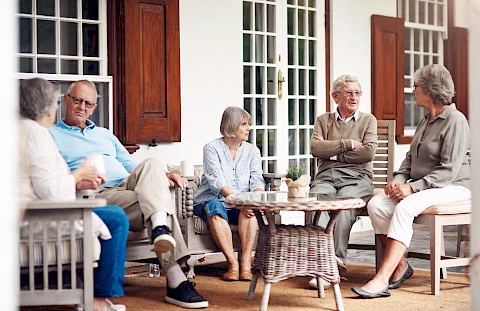
Our loved ones deserve to lead fulfilling and socially enriched lives as they age. One concept gaining traction is senior cohousing. This innovative living arrangement can significantly enhance social wellness, offering a community-oriented lifestyle.
Understanding cohousing can open up new ways for caregivers to support the elderly. Let’s explore what it involves and how caregivers can help them transition into these communities.
What Is Senior Cohousing?
Senior cohousing is a type of living arrangement where a group of older adults lives together as a supportive community. Each resident or couple has a private home, but they also share community spaces like kitchens, gardens, and lounges. Unlike traditional living options, such as nursing homes or retirement villages, cohousing emphasizes collaboration and independence.
In senior cohousing, residents actively participate in planning and managing the community. This can include everything from meal prep to organizing social activities. There are well-known examples of senior cohousing across the U.S., each offering unique amenities and opportunities for engagement.
The Benefits of Senior Cohousing
Living in a cohousing community has its benefits. One of the most significant is enhanced social interaction. Older adults often face isolation, but in a cohousing setting, neighbors are close by, easing the feeling of loneliness.
Another upside is resource sharing, which can lead to cost savings. Residents can share chores and tasks, which reduces the burden on any one person and can lower living expenses.
What truly sets it apart is that cohousing encourages a strong sense of family and belonging. Knowing that help and companionship are just a few steps away can improve emotional well-being and offer peace of mind.
The Role of Caregivers in Supporting Cohousing
For caregivers, supporting older adults interested in cohousing involves several key steps. First, it's crucial to understand their specific needs and preferences. Communication matters, so set the stage for open discussions about the cohousing to determine if it's the right option.
Caregivers can offer emotional support during both the decision-making and transition processes. This might mean helping them research potential communities or accompanying them on visits to different cohousing sites. Providing logistical support, like assisting with the move and setting up their new home, will also help ease the transition.
Considerations for Transitioning to Cohousing
Transitioning to cohousing requires careful consideration. First, evaluate the suitability of this lifestyle for the individual loved ones. Discuss what they wish to gain from such a living arrangement and assess if any community can provide it.
Next, explore and visit potential communities. Meeting future neighbors and experiencing the atmosphere firsthand is essential. Each community is unique, so ensure it aligns with the senior’s personality, values, and lifestyle.
Finally, there are financial and legal factors to consider. Knowing the costs associated with cohousing, including any maintenance fees. It's also a good idea to consult with a financial advisor or legal expert to navigate any agreements or contracts.
We, Too, Support Independent Living
Senior cohousing presents an exciting opportunity for loved ones to live independently while enjoying the benefits of community life. For caregivers, supporting this transition can make a significant difference in the elderly’s lives by enhancing their social wellness and overall happiness.
Whether your loved one plans on living in their current home or decides to move to a cohousing community in the Plainfield, Bridgewater, Edison, Basking Ridge, or Somerset area, contact us at Senior Helpers Somerset. We're here to provide personalized help and assist you and them every step of the way.